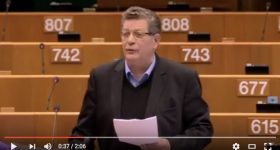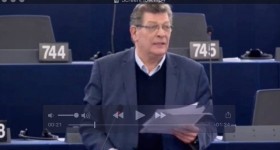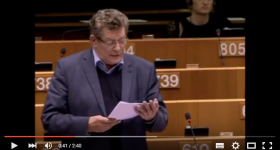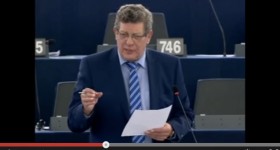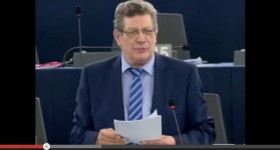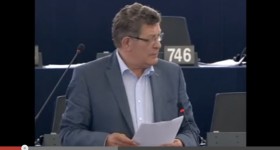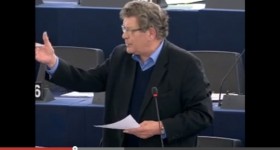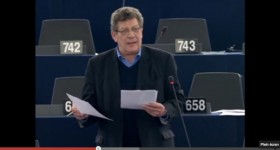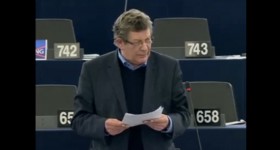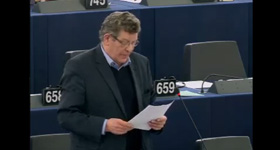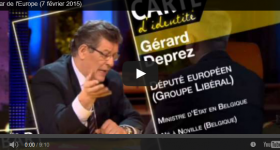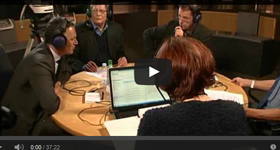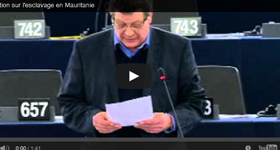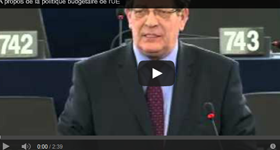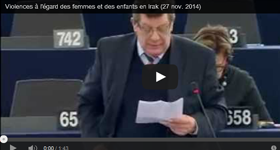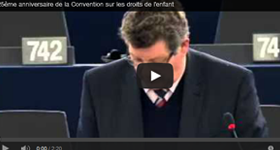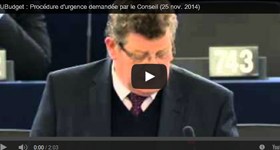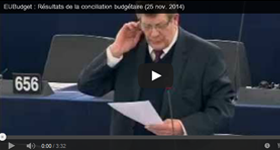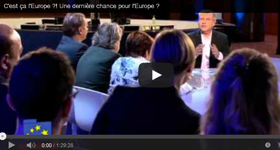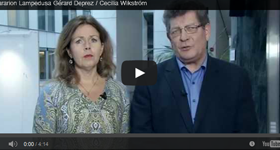Iran Justice Minister confirms his role in Mass Execution of political prisoners
Press release- Brussels- Friends of a Free Iran in European Parliament – 1 September 2016
Iran Justice Minister confirms his role in Mass Execution of political prisoners
EU and UN must call for an international tribunal to investigate
The shocking revelation of an audio file of the late Ayatollah Montazeri, who was the designated successor of Khomeini, founder of the Islamic Republic of Iran, has continued to shake the Iranian establishment in the past few weeks.
The audio file that was recorded during the mass execution of political prisoners in Iran in 1988, disclosed the talks held between Mr Montazeri and the members of the “Death Commission” – a committee composed of four of the regime’s top officials at the time that was tasked with ordering the executions.
An estimated 30.000 political prisoners, many of whom had finished their sentences, were secretly massacred in summer of 1988 in Iran and buried in mass graves following the fatwa of Ayatollah Khomeini.
One of the members of the ‘Death Commission’ whose name and voice is clearly heard on the audio, is Mostafa Pour-Mohammadi, then representative of the Ministry of Intelligence and Security (MOIS) and current Justice Minister in the so called “moderate” government of President Hassan Rouhani.
On Sunday 28 August 2016, Pour-Mohammadi confirmed his role in the massacre: “We are proud we have implemented God’s order about the ‘hypocrites’ (PMOI or MEK). We have stood against the enemy of God and people and confronted them with power.” A day later he added: “I didn’t even have one night of sleeplessness in all these years because I acted according to the law and Islamic Sharia.”
These remarks leave no doubt that the current Iranian government of Hassan Rouhani is complicit in one of the worst crimes against humanity in recent history which has not yet been brought to an international tribunal. Amnesty International, the International Federation of Human Rights (FIDH), Human Rights Watch as well as the Canadian Parliament have all described the 1988 massacre in Iran as a ‘crime against humanity’. *
We therefore call for Iran’s 1988 massacre to be placed on the agenda of the upcoming session of the UN Human Rights Council in Geneva in September 2016. The UN High Commissioner for Human Rights should issue a call for an investigation in this regard.
We also call on the upcoming session of the UN General Assembly in New York (September – December 2016) to issue a resolution and call for an investigation into this massacre and refer its dossier to the Security Council. The UN Security Council should form an international tribunal to examine this case and prosecute its masterminds.
Before entering into any kind of so called ‘human rights dialogue’ with this regime, the EU must insist on the dismissing of Pour-Mohammadi from the government and to send all those involved in the 1988 massacre in Iran to international tribunals for crimes against humanity.
Gérard Deprez, MEP
President of Friends of a Free Iran in European Parliament (FOFI)
Friends of a Free Iran (FoFI) is an informal group in the European Parliament which was formed in 2003 and enjoys the active support of many MEPs from various political groups
Chair : Gérard DEPREZ (ALDE)
Vice-Chairs: Tunne KELAM (EPP), Louis MICHEL (ALDE), Ryszard CZARNECKI EP Vice-President, Eduard KUKAN (EPP), Jan ZAHRADIL (ECR), José BOVÉ (Greens), Marian HARKIN (ALDE) Members of the Board: Jarosław WAŁĘSA (EPP), Emma McCLARKIN (ECR), Beatriz Becerra (ALDE), Jude KIRTON-DARLING (S&D), Richard ASHWORTH (ECR), Stanislav POLČÁK (EPP), Svetoslav MALINOV (EPP), Julie WARD (S&D), Rina Ronja KARI (GUE/NGL), Petri SARVAMAA (EPP),Tadeusz ZWIEFKA (EPP)
* In elaborating on some of the details of the massacre, many human rights organizations have already described the 1988 Massacre of Political prisoners in Iran as a crime against humanity:
- Amnesty International in its November 2, 2007 report wrote: “Amnesty International believes these executions amount to a crime against humanity. Under international law, valid in 1988, crimes against humanity consist of widespread or systematic attacks against civilians on discriminatory, including political, grounds.”
- The International Federation for Human Rights (FIDH) wrote on September 20, 2013: “A quarter of a century ago, in the summer of 1988, thousands of Iranian political prisoners who had already been tried and were serving prison sentences, stood show summary re-trials and were executed. As of today, the Iranian authorities, some of whom were also in power at the time, have not acknowledged these crimes. In a report published today, ‘25 years on, and still no justice: 1988 prison executions remain unpunished’, FIDH and LDDHI qualify them as extrajudicial and arbitrary executions and crimes against humanity. While their extent remains unknown, it is certain that in the span of a few months, several thousand prisoners were executed. Iranian sources have managed to document the names and particulars of at least 4,672 victims so far.”
- Human Rights Watch wrote on October 24, 2005: “The deliberate and systematic manner in which these extrajudicial executions took place constitutes a crime against humanity under international law.”
- Canada’s Parliament adopted the following motion on June 5, 2013: “That the House condemn the mass murder of political prisoners in Iran in the summer of 1988 as a crime against humanity, honour the memory of the victims buried in mass graves at Khavaran cemetery and other locations in Iran, and establish September 1 as a day of solidarity with political prisoners in Iran. »













